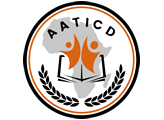Why Attend
The course will provide participants with comprehensive knowledge on the history and evolution of the concept of quality, as well as on the history of quality gurus and tools. Through various workshops and role-plays the course will focus on applications of quality systems, models and methodologies including excellence awards, ISO systems and breakthrough improvement methodologies such as ‘Lean’ and ‘Six Sigma’. This highly interactive course will help participants apply the powerful quality tools used in leading organizations. Participants will leave with best practices on how to select, design or apply quality structures and tools in their organizations.
Course Methodology
The course relies on the use of workshops, role-plays and group debriefs aimed at helping participants understand various quality concepts and applications. The course also features hands-on experience on quality tools applications and is supported by various videos on quality tools and systems.
Team discussions and presentations are also used throughout the course to foster participants’ understanding of quality concepts.
Course Objectives
By the end of the course, participants will be able to:
- Explain the importance of quality models and identify various quality concepts and frameworks used by quality gurus
- Discover the success elements of Total Quality Management (TQM) deployment
- Use TQM improvement tools to enhance customer satisfaction and improve processes within their organization
- Describe various types of benchmarking tools and techniques to boost quality initiatives
- Apply widely used improvement methodologies
Target Audience
Individuals, managers, supervisors and all those who are engaged in quality models, awards, ISO and TQM implementation as well as improving organizational performance.
Target Competencies
- Problem-solving
- Applying quality tools
- Selecting quality models and systems
- Using Lean and Six Sigma applications
- Change management
- Understanding ISO systems
- Applying benchmarking
Location:
South AfricaTraining Dates:
Each course starts every Monday of each week. Please book your training on a date that is a Monday.Course Duration:
Unit Standard:
NQF Level:
Number of Credits:
Course Fees
Note: Please fill in the online application form on the left or bottom if this page to receive a quotation with detailed pricing from AATICD.How to Apply:
To Apply Simply Fill in the Online Enquiries / Applications form on the Right Sidebar or Bottom of this website https://www.aaticd.co.zaNB:
When filling the online application form; please take note of your desired Training Month, Duration in Weeks and Training Session. This will give us the exact dates you will be attending your classes.Also note that Tuition Fees must be paid upfront on or before training start date. This is to ensure that all resources are made availabe for you before you start. You will not be allowed into training if fees are not paid and verified.
Also note that Tuition Fees Cancellations must be made 14 business working days before the starting date of training. This will allow us to do a 50% refund of the total amount paid. If cancellations are made thereafter note that no refund will be made to delegates.
Tuition Fees include teas and lunch as well as either a laptop or tablet which a delegate will take home free of charge.
Tuition Fee DOES NOT include Accommodation, Dinners and other Extra Curricular Activities or Incidentals. Delegates are expected to fund this on their own. AATICD will not be held accountable for any incidents to delegates.
In-House Trainings are also available for 3 or more delegates for any duration. Please consult with our Administration for such In-House training bookings.
Course Outline
- Introduction to total quality management concepts
- Definition of quality and quality models
- History of quality
- Defining TQM
- TQM critical success factors
- The relationship between ISO 9000 and TQM
- Benefits of implementing a quality model
- The cost of poor quality
- Comparing the gurus (Deming, Crosby, Juran, etc.)
- National quality awards:
- The Malcolm Baldrige national quality award
- EFQM, Dubai Quality Award, and HH Sheikh Khalifa Excellence Award
- Selecting the right model for your organization
- The quality maturity ladder
- The success elements of TQM
- Customer-driven quality
- Plan, Do, Check, Act (PDCA) model
- Eight-step problem-solving methodology
- Process thinking
- Eliminating the non-value added
- Management by facts and data
- Continual improvement and Kaizen
- Enhanced employee participation and decision making through idea-generating systems
- Employee reward and recognition
- Improvement tools and methodologies
- What is a quality tool
- The seven quality control tools
- Cause and effect diagram, check sheet, control charts, histogram, Pareto chart, scatter diagram, stratification
- Brainstorming
- Tree diagrams: how-how and why-why diagrams
- Force field analysis
- Affinity diagrams
- Process mapping: ‘the turtle’
- Poka-yoke
- Lean thinking
- The seven types of waste in organizations
- Visual management and the 5S program
- Six sigma
- Benchmarking as a tool to improve quality and business processes
- Definition of benchmarking and reasons to benchmark
- Levels of benchmarking
- Pros and cons of different benchmarking approaches
- Elements of a continuous improvement process
- The eight steps to achieve improvement
- Critical success factors and common failure factors in TQM




